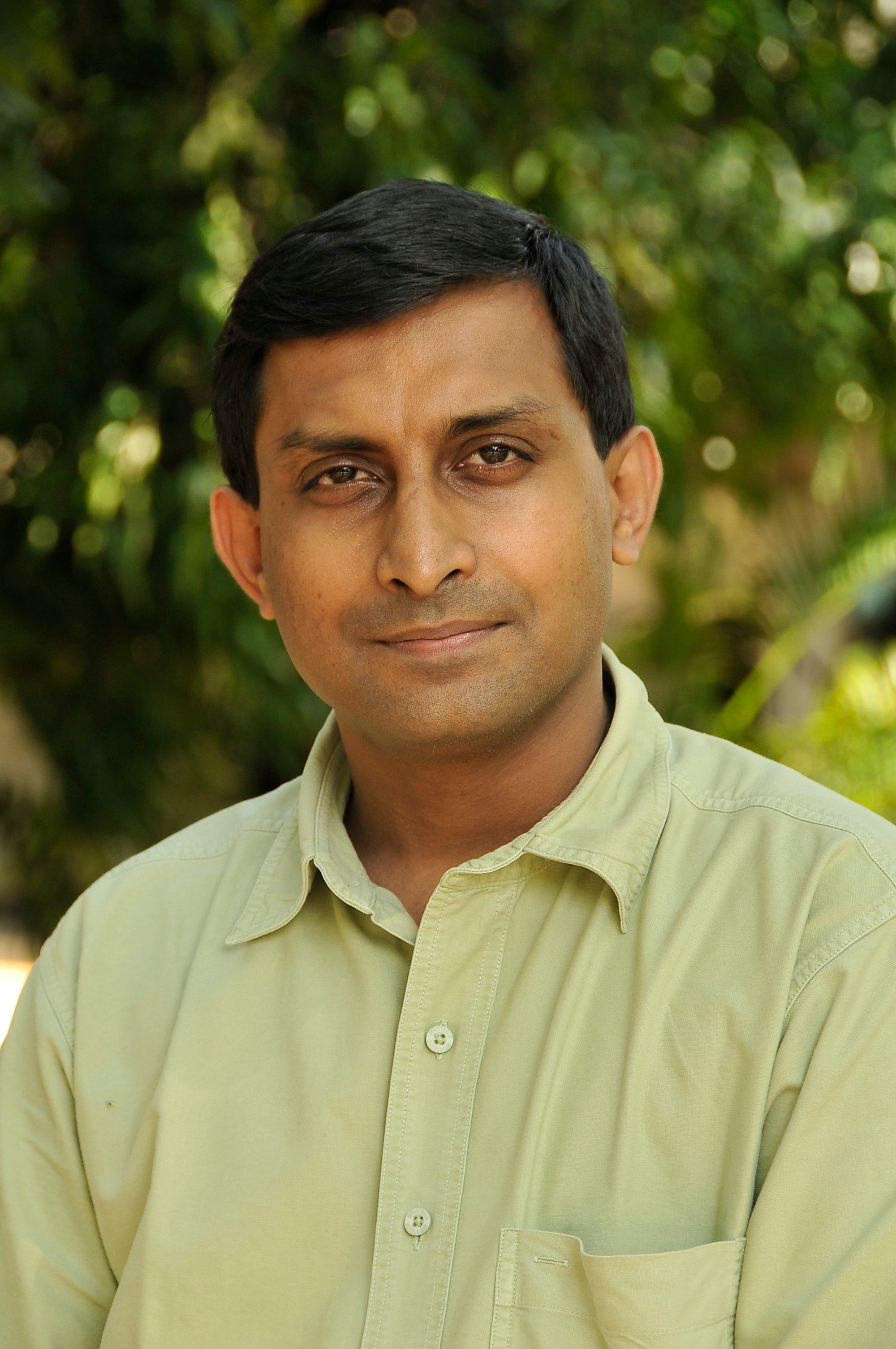“A startup has to cross a pond and go to the other side. There are stepping stones to cross the pond. Our role as an incubator is to ensure a continuous set of stepping stones at the place where the person chooses to cross the pond. If there is a gap, we need to fill that up,” says Premnath Venugopalan, Director, Venture Center.
For some businesses, he adds, the distance is large. For some others, the distance is small. Some businesses need only a few stones. In some, the stones are not there. “Then we have to go and fill it up. That is our contribution to ecosystem development.”
One piece of statistic alone is enough to make people sit up and take note: nearly 30 percent of the startups incubated at Venture Center have women founders. Besides, almost half of the ventures at the incubator have at least one woman co-founder. Nearly 80 percent of Venture Center’s 50-member team is made up of women.
Nurturing women founders
Was there a bias towards women founders, or did it happen by chance? Premnath says there was no bias towards women founders, but it is a consequence.
In scientific domains, there are a lot of women who get trained in top institutions. There are several reasons not many become entrepreneurs – lack of networking opportunities and absence of role models. The presence of a supportive environment helps, and this is where Venture Center scores.
“The fact that many of our managers and in-house mentors are women helps. The connections are a little easier that way,” says Premnath and adds that the campus environment makes a huge difference. It gives women founders, especially their families, safety and security rather than operating from an industrial area.
Venture Center, based in Pune, was founded on December 18, 2006, and incorporated on January 10, 2007. Premnath, who helped set up Venture Center, is a chemical engineering graduate from IIT Bombay and a Ph.D. from MIT. He had long been interested in medical products and the space where material science, chemical engineering and medical products merged.
His Ph.D. days saw Premnath interested in product development in the healthcare space, and one of the projects he picked up was in total hip and knee replacement. This was a joint project of MIT and Massachusetts General Hospital, a leading hospital of the Harvard Medical School. This allowed him to work on medical devices and understand the potential for such devices.
 Dr V Premnath, Venture Center
Dr V Premnath, Venture CenterA Chevening Fellowship on technology entrepreneurship in the UK helped him understand the space better and provided an opportunity to visit a few incubators. These helped Premnath establish Venture Center with support from the National Chemical Laboratory and the Council of Scientific and Industrial Research initiative.
The initial funding came from the Department of Science and Technology. Premnath says Venture Center was one of the few incubators with a surplus from the beginning. It ensured this by offering various services to ventures, organising events and running activities.
“From day one, we invested in people. We have a large team, which not many incubators do,” he points out. Venture Center, he says, was entrepreneurial about raising money from services and events.
Focus on inventive enterprises
There are a few anchor points in Venture Center’s journey. One, it is focused on science-based knowledge-intensive startups that have some invention or specialised knowledge.
“When you choose something like that, you are leaving out a few domains,” admits Premnath. From the beginning, the aim was to focus on those with specialised knowledge, which was IP-driven. This would be a source of competitive advantage for the companies.
Venture Center also decided to have open access. That is, anyone could apply for incubation as long as they fulfilled the criteria. According to Premnath, Venture Center was transparent from day one. It put out its term sheets, cost of all its services online.
“No other incubator did it,” says Premnath. This made it predictable for the ventures and their founders. Anyone can view all the laboratory facilities and equipment online. The services it provides, such as accounting, financial, secretarial and applying for patents, are spelt out, and the fees are mentioned.
More importantly, the staff understand science and technology and are qualified and equipped to help founders from the beginning.
Another significant decision Venture Center took was not taking equity in the ventures it was incubating. “It is not our model, where we force equity arrangements. We take equity only if we are investing from our seed fund or we have gone and created the company from a research institution, and we are a co-founder,” says Premnath.
According to him, Venture Center and National Chemical Laboratory have an arrangement that will help facilitate spin-out companies. The idea is to look for capabilities, identify entrepreneurial team members, get a commitment for money and then launch the company. This model, different from incubating ventures, involves equity arrangements.
Building the ecosystem
Over the years, Venture Center has improved facilities and equipment. For instance, when it realised some founders had to go abroad to get samples tested simply because facilities in Pune or other parts of the country were not giving them a priority, Venture Center went ahead and created those testing facilities.
“We have chosen a few areas with a few themes in mind,” says Premnath. Venture Center has also built domain expertise in IP and technology transfer areas. It has been nominated as the regional tech transfer office of the National Biopharma Mission funded by BIRAC (Biotechnology Industry Research Assistance Council) for West Zone.
Venture Center has also built capacity for regulatory information because regulation happens to be one of the biggest risk factors for startups. Dealing with the unknown results in an uncertain business path.
“These pieces of the puzzle are essentially ecosystem building, where intellectual property, tech transfer, regulation, scientific facilities, infrastructure, money at different stages through grants and various other sources, mentors, external networks, partners – all we are trying to assemble and make them available to startups,” he said.
One of the biggest assets for any incubator is the peer group of other founders, which Venture Center has actively pursued.
“For example,” says Premnath, “many women entrepreneurs get started because they see so many other women entrepreneurs around. Many of them exchange notes, and many of their insights and inputs are practical as they have just done it. It is not bookish or theoretical. We have a peer-to-peer platform.”
The incubator is spread over 55,000 sq ft. It does not specify how long ventures can stay at the incubator. After the first two years, the startups have to come for reviews for an extension every year. This is because some companies, especially those in the medical devices space, may take longer to get a minimum viable product out, and their regulatory process takes much longer to accomplish.
However, there is one measure to discourage the ventures from staying too long at the incubator: in terms of pricing, their terms escalate as they stay longer.
Seed investing
According to Premnath, Venture Center has three seed funds from which it invests in startups. Two of those are with BIRAC and one with DST. Two of these funds allow Venture Center to invest up to Rs 1 crore and up to Rs 30 lakhs. It tries to co-invest with other investors. Venture Center holds equity in 31 companies, about 10 of them are lab-to-market, spin-out companies, and 21 are seed investments.
The stake depends on the type of venture and the business readiness and ranges from 3 to 15 percent. The plan, according to Premnath, is for Venture Center to have its SEBI-registered venture fund.
Venture Center now has about 70 companies under incubation, with about 100 moving out after incubation. It now plans to increase scale of operations, with Pune remaining as its hub of operations. Its focus areas will be healthcare, biomedical, life sciences, energy, environment, sustainability, engineering, electronics, manufacturing and engineering services, agriculture, food and nutrition.
As of now, 58 percent of the incubatee companies are in the healthcare space, 16 percent in the clean energy/environment space, 14 percent in the agriculture and industrial biotechnology space, and 6 percent in the ICT/electronics/engineering space.
Divyakshi Kaushik, Founder, Anatomech, is a healthcare startup developing wearables to rehabilitate body parts that have been injured or have undergone surgery. The startup is being incubated at Venture Center and Kaushik says it helps her company in many ways.
One is the network of mentors and subject matter experts that she and her team can tap into, the grants she can apply for, and the prototyping and 3D printing they have done.
Shubham Singh, Co-founder and CEO, Fuma Labs, a company in crop waste management, says the Venture Center campus has everything that he needs in one place. Being next door to NCL is a big bonus as they can get technical expertise whenever they need it. Venture Center has an excellent set of mentors, and the whole working of the incubator is open and transparent.
Credit: Source link


Comments are closed.